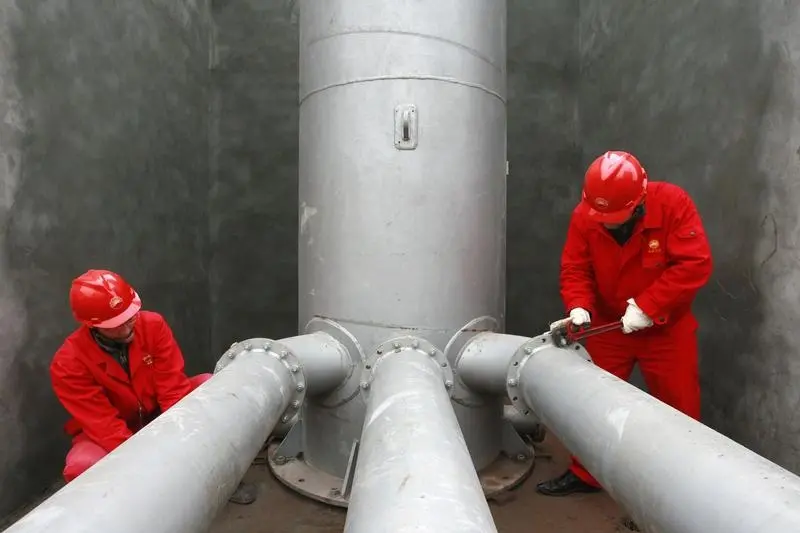PHOTO
SINGAPORE- Asian refining margins for gasoline rose on Thursday, partly supported by tighter cargo supplies, but traders were concerned that demand for the transportation fuel would take a hit due to renewed COVID-19 lockdowns in several markets.
Refining profit margins, also known as cracks, for gasoline climbed to $8.47 per barrel on Thursday, up from a near three-week low of $7.70 per barrel touched in the previous session.
With extended lockdowns and mobility restrictions in key markets including Indonesia, Vietnam and Thailand, the regional gasoline market is expected to remain under pressure in the near term, market watchers said.
Indonesia currently has one of the world's worst coronavirus outbreaks due to a rapid spread of the Delta variant, while Vietnam's capital city Hanoi has implemented stricter social distancing measures from this week.
Despite ongoing curbs on movement and gatherings, Thailand reported record coronavirus cases for a second consecutive day on Thursday.
Asia's naphtha crack rose to $136.28 per tonne on Thursday, compared with $130.88 a tonne on Wednesday.
INVENTORIES
- Singapore's light distillate inventories dropped 15.7% to a six-week low of 12.3 million barrels in the week to July 21, according to Enterprise Singapore data.
- Weekly Singapore light distillate inventories have averaged 14.1 million barrels so far this year, compared with an average of 14.2 million barrels in 2020, Reuters calculations showed.
- U.S. gasoline stocks fell by 121,000 barrels in the week to July 16, compared with analysts' expectations for a 1 million-barrel drop, the Energy Information Administration said on Wednesday.
OTHER NEWS
- Global commodity trader Mercuria is aggressively expanding its energy transition business, snapping up employees from oil majors BP Plc and Royal Dutch Shell, according to three people familiar with the matter and employee LinkedIn profiles.
- Oil prices rose on Thursday, extending strong gains made in previous sessions on expectations of tighter supplies until the end of the year as economies recover from the coronavirus crisis.
(Reporting by Koustav Samanta; Editing by Aditya Soni) ((koustav.samanta@thomsonreuters.com)(+65 6870 3503)(Reuters Messaging: koustav.samanta.thomsonreuters.com@reuters.net))





















